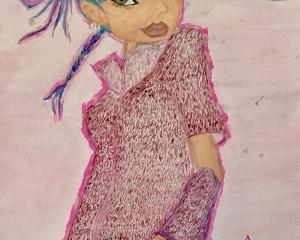
St Hilda’s Collegiate, Dunedin
What do you want to do when you leave school?
This is often asked throughout our lives and the one question I struggle most to answer every time.
There is a list of over 1200 different careers and we are expected to be able to pick one.
It’s ridiculous.
So, what do you want to do when you leave school?
This question evolves with us.
We used to be asked what we want to be when we are all grown up, but it never used to be that deep.
Among my year 12 English class there were lots of future hairdressers, zoo keepers and nurses.
We all had something exciting and fun we wanted to do and for me, well right now you are looking at someone who thought they would be a monster truck driver.
It’s safe to say that my ambitions have changed.
The question is asked by the older people in our lives; it’s asked by teachers, parents and grandparents.
But we should really be asking them, are you in the career you left school and studied for?
The average person changes their career three to seven times throughout their working lives.
For example, there’s Miss Crawford.
Miss Crawford was set on being a sports psychologist, and look at her now teaching our year 12 English class.
So really, does it really matter which one we pick now, because we are bound to change in the future.
It is estimated that Gen Z will have 17 jobs across five different careers.
So even if you think you have chosen your lifelong career, you just might have to think twice, or maybe five times.
So using this estimation, perhaps we should be asked, what five careers do you want once you leave school.
But still, we dread having to answer — which career do we want to pursue first?
For some, the answer to the question may lie within science and innovation; seeing yourselves as researchers, inventors, or engineers, dedicating your lives to pushing the boundaries of human knowledge and improving the world through ground-breaking discoveries.
Others may turn to the arts and humanities.
You may aspire to be writers, musicians, actors, or artists, who use creative talents to inspire and entertain.
Through your work, you may aim to touch the hearts and minds of people, challenge societal norms, and bring about positive change.
There are those who will venture into entrepreneurship, taking risks to build their own businesses.
You, individuals, possess determination to turn your ideas into reality, to create employment opportunities and to make a mark on the world.
Some of you may be drawn to professions in service and compassion.
You may choose careers in healthcare, education, or social work, driven by the desire to help those in need.
These individuals understand the importance of making a difference in the lives of others.
But enough of that, as I bet you are already sick of me listing what is only a small fragment of what options lie in our futures.
I am now going to ask those of you reading this, to really think about an answer to the big question — do you know what you want to do when you leave school?
Nod if you do.
When writing this, I knew it could go two ways; either everyone would nod their heads and I would be inspired by you all, or there would be many of you who could only shake their head.
And well believe it or not, I’m shaking my head too.
The truth is, our passions and aspirations are forever changing.
What we want to do today might not be what we want to do tomorrow, or five years from now.
And that is perfectly fine.
The pressure to have a definitive answer to the question can be overwhelming, especially when we are bombarded with the expectations that we should have it all figured out.
But I don’t really think we need life to be all figured out.
If it was, there would be nothing new and exciting and I am looking forward to finding out what new and exciting things lie for me in my future and you should all be excited for yours.
During my thinking on this whole issue, I came across a quote from Diane von Furstenberg: "I didn’t always know what I wanted to do, but I knew the kind of woman I wanted to be."
This is relevant because it tells us what is most important.
What’s most important is not what we want to do when we leave school, but what kind of person we would like to be.
So my challenge to you is to forget about stressing yourself over your future career path, and instead consider what kind of person you want to be.













